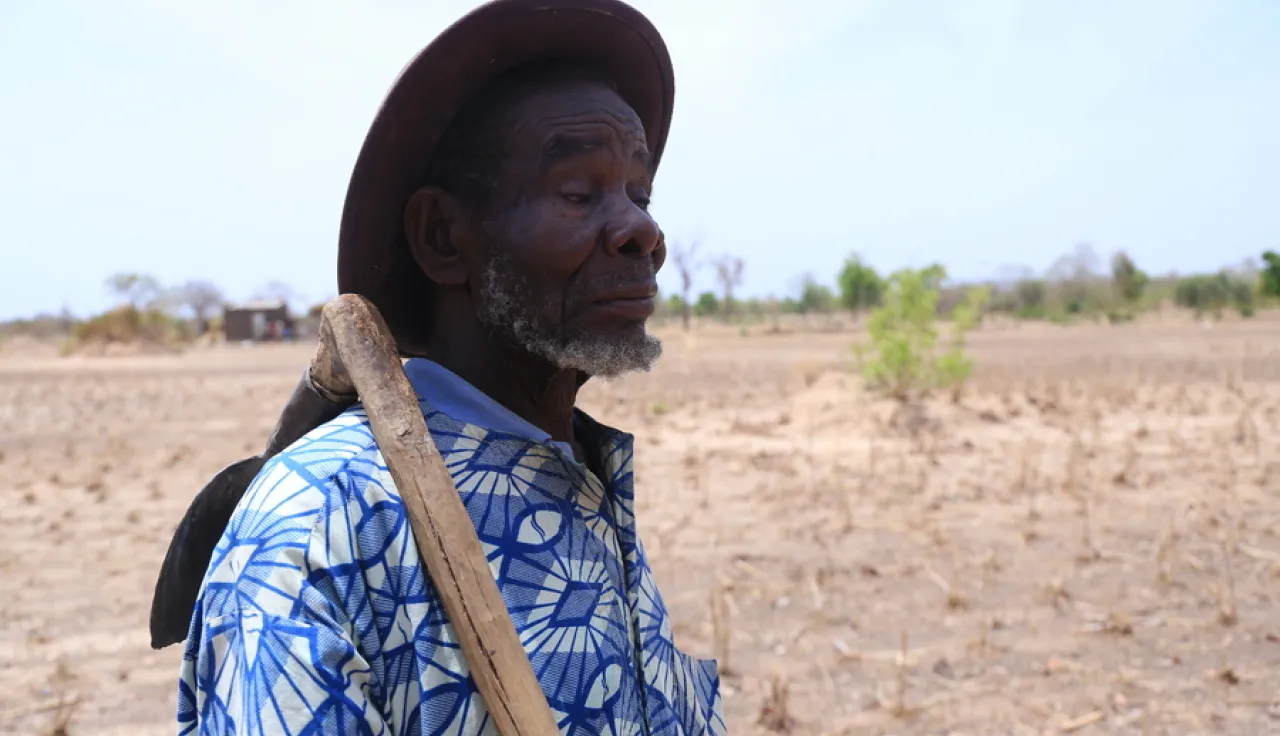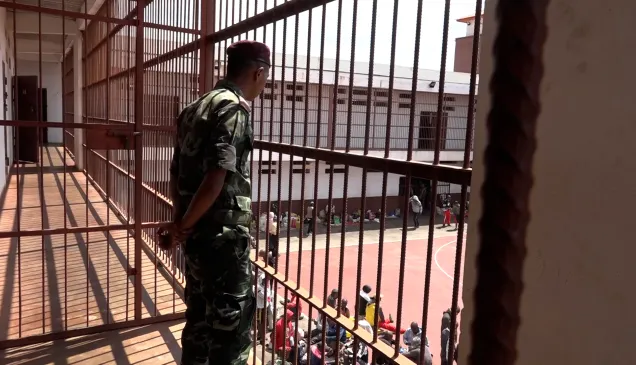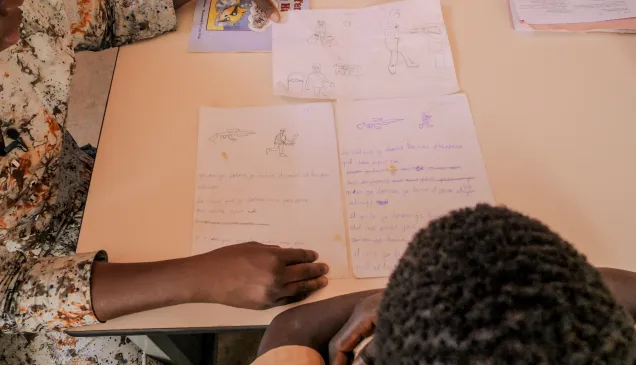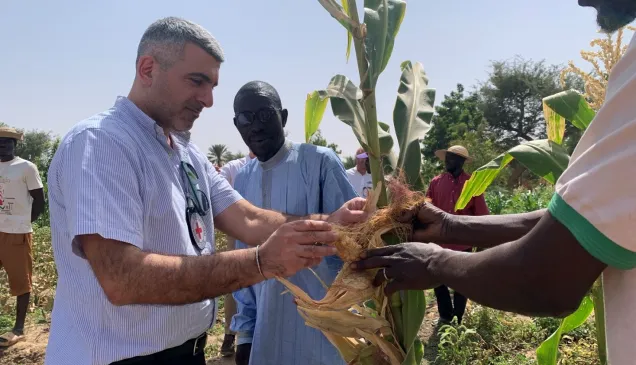Burkina Faso: when food aid is the only hope

Thousands of displaced people in Burkina Faso, facing both a major food crisis and an upsurge in armed violence, have come to rely entirely on the government and humanitarian organizations. Forced to abandon their crops and means of livelihood, these people are now extremely vulnerable.
The facts are simple: the 2021 growing season in Burkina Faso was one of the worst in recent years owing to extremely sparse rainfall in around 20 of the country's 45 provinces. In many cases, people who managed to plant seeds ended up with nothing to harvest. This situation resulted in a 461,000-tonne grain shortage countrywide. And according to government figures, more than 450,000 hectares of arable land lay fallow in 2021 owing to rising levels of violence.
More than ten million people are underfed in the Sahel region more broadly, and things improved little in 2022.
"Only God knows why I'm still alive"
We met Salimata Ouédraogo in Ouahigouya, where she now lives, as she was making the rounds of various places where displaced people like her had gathered. She was hoping to chance upon a food distribution, so that she could have something to eat for a few days. No such luck.
"There's less help available, I've been walking for hours. Even though I looked all over the city, I found nothing. But I can't go back emptyhanded – my children are waiting for me and hoping to eat."
Just over 400 kilometres away, in the eastern city of Fada N'Gourma, Louari Amsatou faces a similar predicament. This 29-year old woman, also displaced, gave birth to twins a week ago. Toting them around with her, she has resumed her routine of roaming the city in search of food. "While I was pregnant, I was diagnosed as malnourished and anaemic. Only God knows why I'm still alive. Since leaving my home behind, I've relied on people's goodwill. But this year, there was nothing to harvest and we're all in the same boat," she says with a sigh.
According to the Ministry of Agriculture, over 2,800,000 people are suffering from food insecurity. New weather patterns have already turned 50,000 hectares of farmland into barren fields.
Diabri Ousmane, who arrived in Fada N'Gourma two years ago, witnessed this up close. Because of climate change, he was unable to grow anything on the half hectare of dry terrain he had received from a benefactor. "I thought I would get back some dignity, that I wouldn't have to rely on aid anymore, but my hopes have vanished," he says.
"Hunger kills"
The ICRC helps communities in need by distributing food as well as money to purchase food. More than 4,800 people in Ouahigouya and Séguénéga, in Burkina Faso's Nord region, have received money for food. Three more distributions of this type will take place to help those who benefit from our programme get through the food crisis.
Like 80% of Burkina Faso`s population, Larba relies on agriculture for his livelihood.
BUT
After he had to flee his home due to conflict, he foresees no harvest.
As Larba, many in Burkina Faso are struggling to feed their children. pic.twitter.com/01pDT0cuSf— ICRC Africa (@ICRC_Africa) May 18, 2022
In Ouahigouya, special attention is paid to children and pregnant or breastfeeding women, who receive fortified flour. Close to 400 children and over 8,800 women have benefited so far. Fortified flour was also provided to nearly 1,900 malnourished women and children in an ICRC-backed health centre in Fada N'Gourma.
Harouna Sawadogo is the head nurse at a health centre in Fada N'Gourma. "When there's a shortage of nutritious food, people go hungry, and hunger kills," she says. "Malnutrition is also a problem. It causes stunting in young children, while severe malnutrition can lead to death in the medium term."
What's more, pregnant women can "experience miscarriage, preterm births and complicated births," she adds. "And malnourished women who are breastfeeding struggle to provide the necessary nutrients to their babies, who may end up suffering from malnutrition themselves."
The ICRC also has an initiative to help people reclaim abandoned farmland. For example, 300 displaced people were paid to fertilize 56 hectares of land, which will be cultivated by 75 families in Ouahigouya.
"We're ramping up our efforts in the region around Ouahigouya," says Moderatus Kwitonda, an ICRC delegate. "People are suffering terribly, and the ICRC alone can't meet everyone's needs. I would encourage all organizations active in this region to join forces and turn their good intentions into concrete action."
Key figures for 2021
- Around 80,000 displaced people in Burkina Faso's Nord and Sahel regions received three food rations (millet, rice, cowpea, oil and fortified flour). Some of these people were also granted financial assistance.
- Over 32,000 people in the Est, Nord and Sahel regions – both residents and displaced people – were given onion, tomato, millet, sorghum and cowpea seeds in order to grow cash crops. Farming implements such as watering cans and hoes were also provided.
- More than 38,500 farmer-herder households benefited from a programme to vaccinate and deworm livestock. These preventive efforts reached 465,000 cattle and nearly 700,000 sheep and goats in the Est and Sahel regions. Around 4,000 people from these households also received food for their livestock.



